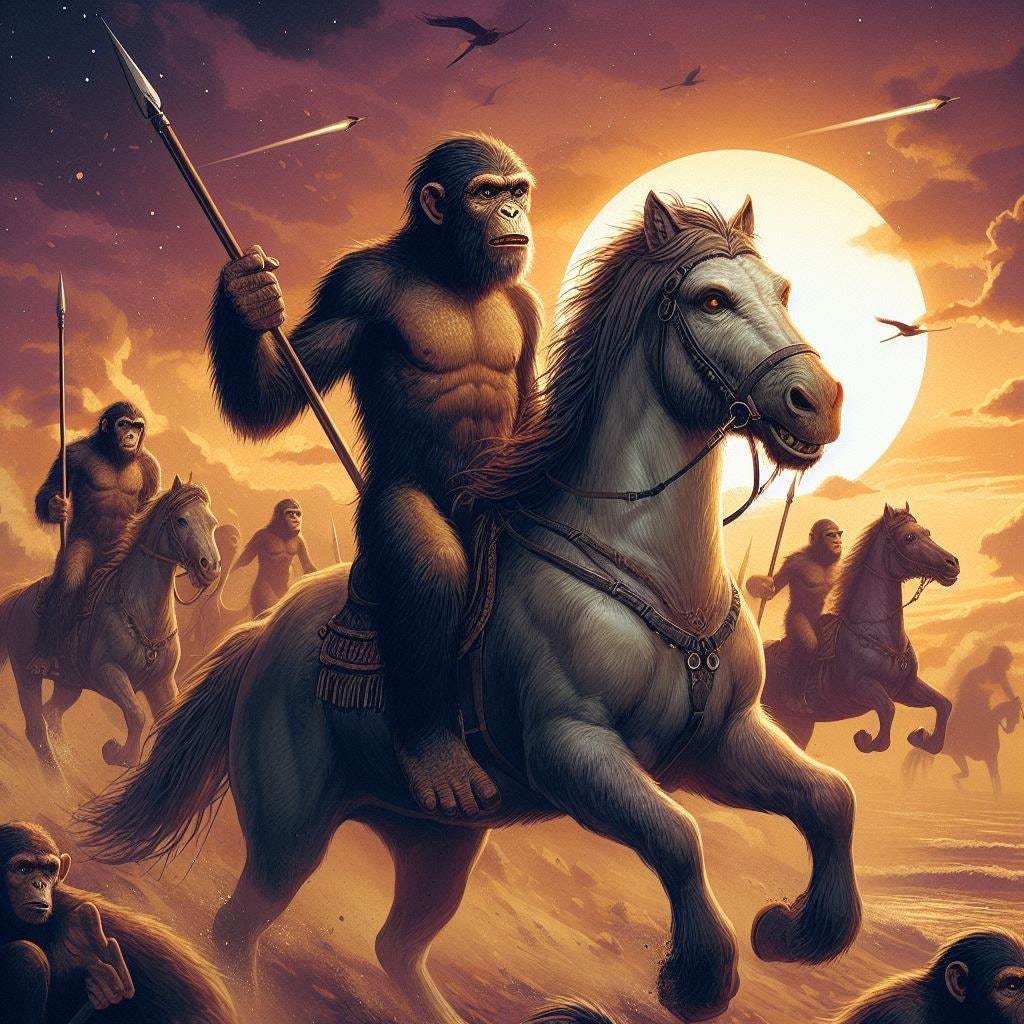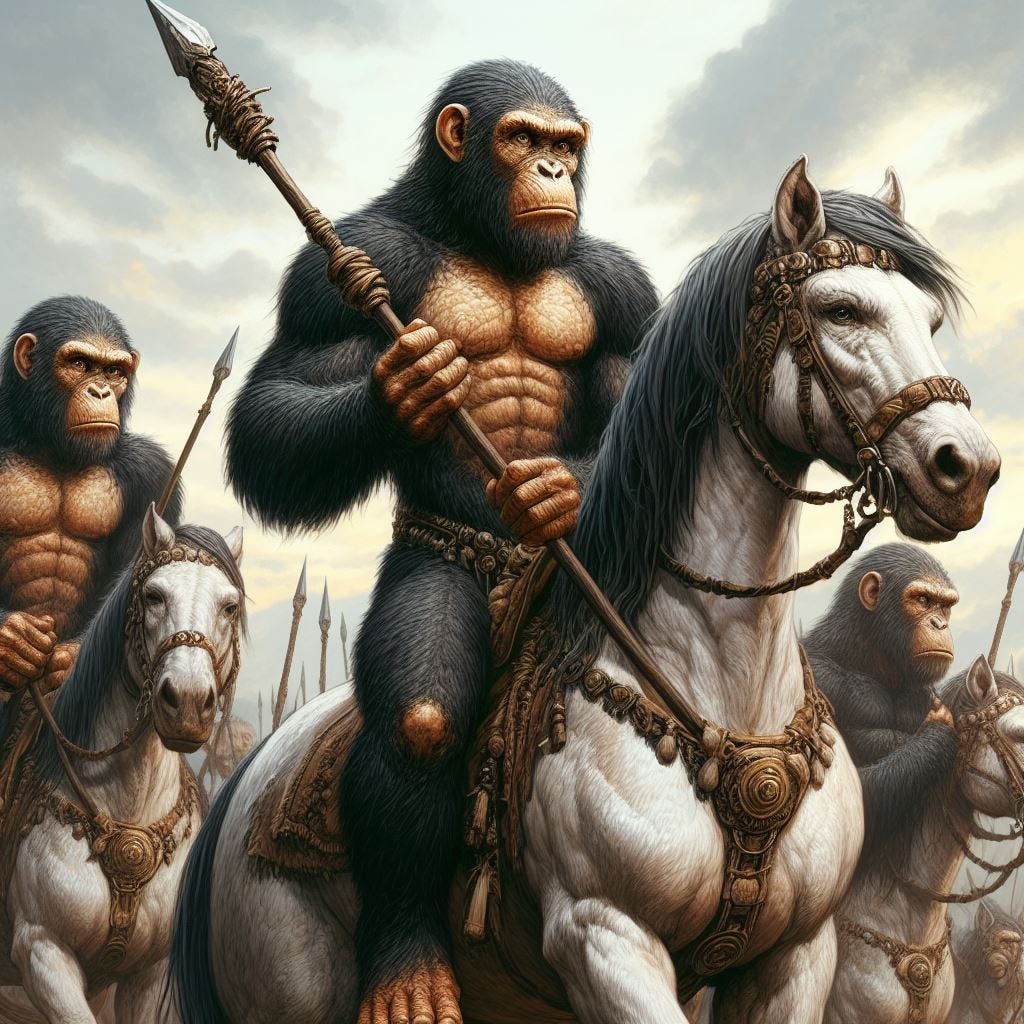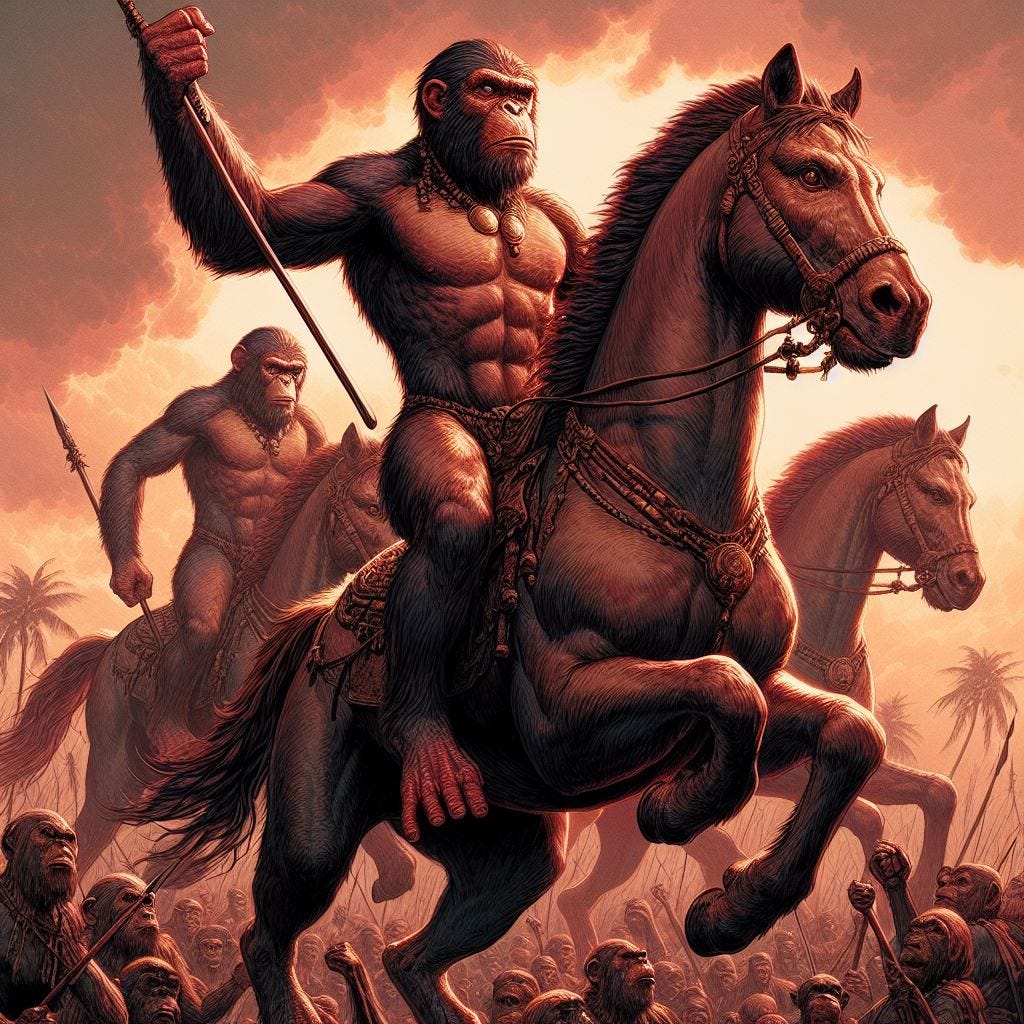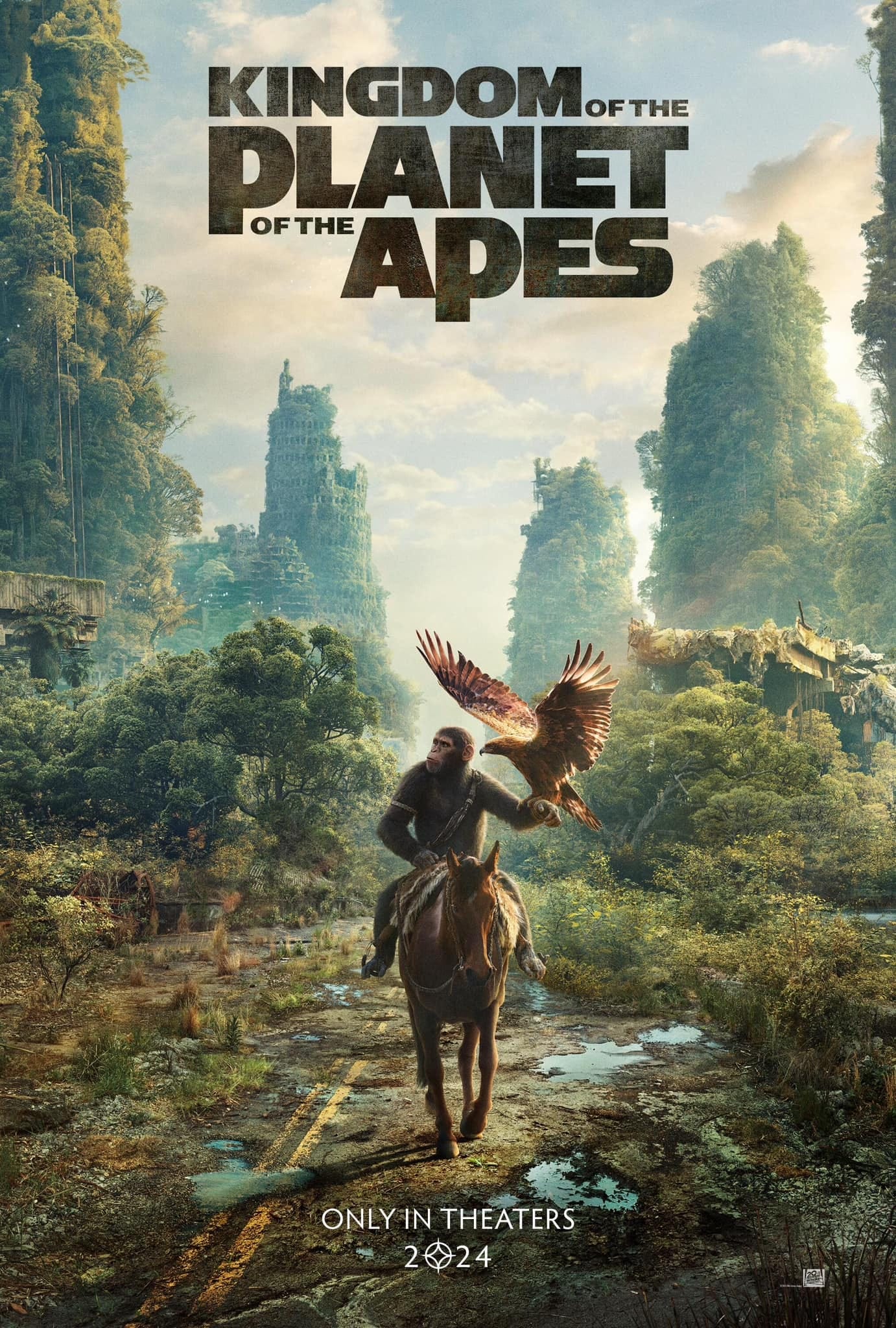Planet of the Apes, by Pierre Boulle, a French author you might know better for writing The Bridge over the River Kwai, is one of the most powerful works of Science Fiction to have graced our culture. The book saw the light of day in 1963 and the author considered it one of his minor works, although arguably it is the most successful one.
Pierre Boulle heavily disliked the term “science fiction”, preferring to call it a “social fantasy”, as the theme was underestimating the decrease of human intelligence, relevant even today.
The plot featured a journalist and a scientist who traveled to a distant planet on which they discovered an advanced society of apes, enslaving a less intelligent society of humans. I won't go into detail on how it unfolds, but those who haven't read it should. I'll just say this: It's completely different from any movie adaptation.
The original movie, released in 1968, showcased Charlton Heston playing the main character. It’s probably the most famous iteration of the franchise, and its plot severely strayed from the book. One of the most obvious changes was that the Ape society was rather primitive, not resembling the 20th-century style society described in the book. Budget cuts led to this, as the complexity of an advanced civilization was deemed costly.
There were other differences, the largest being the ending, which I won't discuss. I won't spoil it for those who haven't seen the movie, but it didn't affect the story's quality. The attention to detail was high and it surprised even book readers. The ending contains one of the most famous frames in the history of cinema. If you don’t already know what I mean, you will once you see it.
Building on the original movie’s success, the studio made four more sequels until 1973 (Beneath the Planet of the Apes, Escape from the Planet of the Apes, Conquest of the Planet of the Apes, Battle for the Planet of the Apes), and a Planet of the Apes TV Series released in 1974, with an order of only fourteen episodes, as cancellation followed because of poor ratings. A final animated series, Return to the Planet of the Apes, released in 1975, and while critics described it as having intelligent scripts and being much closer to the original book than its live-action counterparts, it only had thirteen episodes. This marked the end of the original Planet of the Apes franchise.
There was an attempt to revive the series in 2001, with director Tim Burton at the helm and Mark Wahlberg playing the main character, bearing the original title, Planet of the Apes. I particularly loved the ending of this movie and thought it had enormous potential. While the film was quite successful with the audiences, as proven by the box office numbers, critics found the plot overwhelmingly confusing, and negative reviews poured in. Despite the producers' willingness for a sequel, Tim Burton found the production too challenging and declined to continue, leading to the indefinite burial of the franchise.
But it was 2011 when the franchise got a refresh, this time with the successful reboot titled Rise of the Planet of the Apes. The twist, this time, is that the series focuses on a separate timeline, earlier than its predecessors and features an Ape as the main character, Caesar, played by Andy Serkis. The plot is different, as it involves a virus, the simian flu, and no nuclear war. Special effects are also something to behold, as they switched from the traditional Ape costumes used in previous movies to full-on motion capture CGI for the Apes, a change which some perceived as welcome, while others pointed out that takes away some of the charm. I haven’t decided yet about that, however; Being specific to the new series, motion capture CGI serves to give uniqueness to the new movies and firmly distinguishes them from the classics by refreshing not only the plot but also the visuals. I believe it is beneficial for differentiation.
The 2011 movie also spawned two sequels which told Caesar’s entire story, the second one being my favorite, Dawn of the Planet of the Apes. The third one, War for the Planet of the Apes, was more action-packed, but less focused on storytelling and I found its plot to be a bit lacking compared to the first two.
Now, in 2024, we have the chance to watch a follow-up fourth movie focused on Caesar’s legacy, as the setting is a while after Caesar’s death. And for me, it was the movie I looked forward to the most this year.
The main character is still an Ape, Noa, who looks much like Caesar did in the trilogy. It is obvious, though, that it’s a distinct character from the very beginning. The resemblance is most likely intentional, to facilitate returning audiences’ understanding of who the good guys are.
The film is ripe with references to older films in the series - and I can mention here a certain beach scene that resembles one in the original movie - and other elements outside it. One of the most peculiar examples is a Terry Pratchett reference. Noa meets an orangutan during his travels, learning about Caesar from said orangutan. What does the orangutan do? He keeps a hold of information regarding Caesar and the history of the Apes. How is this information preserved? By way of books.
So the orangutan is a librarian. There you have it. That’s your Terry Pratchett reference. Discworld readers will know what I mean. I found it an interesting little reference, considering only people familiar with Discworld and/or Terry Pratchett would catch that one.
There is a human element present as well, and the eternal human-ape conflict we have witnessed in this franchise over the years is a constant theme, however in this case, unlike the first three movies of the modern era, the humans are almost extinct and lack intelligence. And by the end, it goes in a completely different direction.
While Kingdom of the Planet of the Apes pretty much works as a standalone movie, separate from other iterations, the ending implies there are more stories to be told here and leaves room for a sequel in an almost cliffhanger-like manner. Kingdom is a good movie by itself, but if there will ever be more to pick up where it left off, it has the potential to become one of the greatest movies of the franchise.
It feels like Fellowship of the Ring, but without that many fellows and (at least for now) not any sequels. Once placed into a broader story, it will truly fulfill its purpose.
Watch it without hesitation. It is a Planet of the Apes story unlike anything that has been told in this universe until now, and it’s worth expanding upon! I hope we’ll get to see the sequel that it deserves!
“APES. TOGETHER. STRONG!!!” - Caesar









